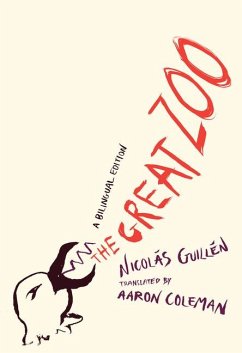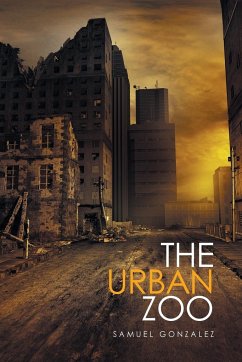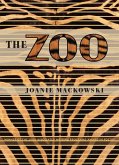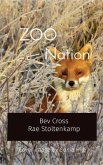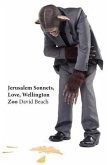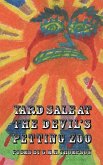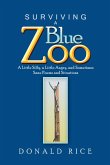"Originally published in Spanish in 1967, The Great Zoo by the Afro-Cuban poet NicolaáI p1 ss GuilleáI p1 sn (1902-1989) is a wry political project structured as though a fantastical bestiary of ideas and ideologies. Parodying the perceived authority and objectivity of zoological grammar, the poems present taxonomic-imagistic descriptions of caged entities in the voice of a dispassionate zoo tour guide explaining to the reader-as-visitor what appears inside each enclosure. These captive inhabitants include the Mississippi and Amazon Rivers as transmogrified snakes; a winged, singing guitar; clouds from around the world; a temperamental atomic bomb; blue-pelted police; and a bloodthirsty KKK. Newly translated by Aaron Coleman with a keen eye toward histories of colonial racialization, oppression, and exoticism, this bilingual edition of The Great Zoo establishes a creative mode in which the authority of language born of racial-colonial regimes in the so-called New World is critically, at times even comically, exposed and rewritten"--
Hinweis: Dieser Artikel kann nur an eine deutsche Lieferadresse ausgeliefert werden.
Hinweis: Dieser Artikel kann nur an eine deutsche Lieferadresse ausgeliefert werden.

